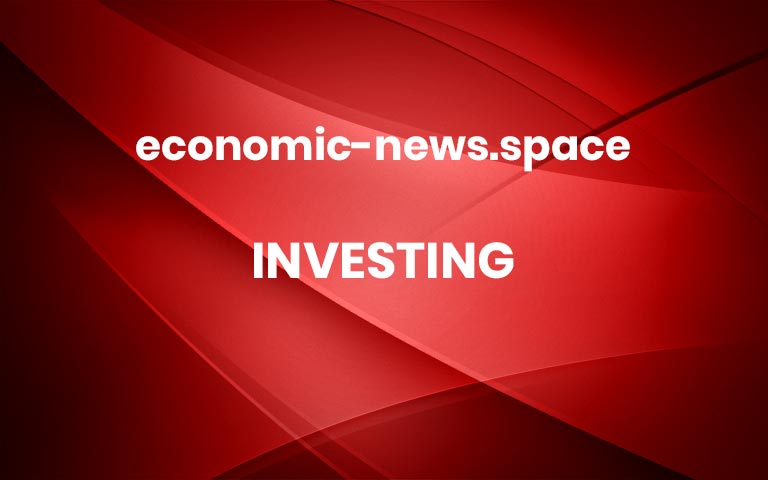The election outcome and future policy could impact the municipal bond market, experts say.
A popular asset for higher earners, muni bonds generate interest that is federally tax-free and avoids state levies when investors live in the issuing state.
However, there’s uncertainty around interest rates, income taxes and public financing.
The first presidential debate between U.S. President Joe Biden and former U.S. President and Republican presidential candidate Donald Trump is projected on a screen projector during a watch party hosted by the Michigan Conservative Coalition in Novi, Michigan, U.S., June 27, 2024.
Emily Elconin | Reuters
With interest rate cuts from the Federal Reserve likely on the horizon, municipal bonds could soon see higher demand, experts say. But there are several factors to watch, including the election outcomes of the presidential and congressional races, and future policies.
A popular asset for higher earners, muni bonds generate interest that is federally tax-free and avoids state levies when investors live in the issuing state. Munis typically have lower default risk than their corporate counterparts.
The election outcome could have a “massive impact” on the future of the U.S. muni bond market, said Tom Kozlik, head of public policy and municipal strategy at HilltopSecurities. Future policies from the next president and Congress, such as changes to taxes or public financing, could make munis more or less attractive to investors.
More from Personal Finance:How on-time rent payments can help ‘credit invisible’ consumers be seenLower capital gains tax, SNAP cuts: What Project 2025 could mean for your walletHere’s where 2024 vice presidential picks stand on Social Security
How muni bonds have fared for investors
After losses in 2022 and 2023, muni bonds have been slightly positive in 2024, with roughly a 1% year-to-date return for the S&P municipal bond index, as of July 17.
However, “muni yields are at their highest levels in years, offering significantly better compensation than in recent history,” said Sean Beznicki, director of investments for VLP Financial Advisors in Vienna, Virginia.
Those yields could fall quickly when the Fed cuts interest rates and demand increases for muni bonds, said Kozlik. Bond yields and prices move in opposite directions.
Muni yields are at their highest levels in years, offering significantly better compensation than in recent history.
Sean Beznicki
Director of investments for VLP Financial Advisors
Of course, when weighing muni and corporate bonds, you need after-tax yields for an apples-to-apples comparison.
For example, let’s say you’re in the 35% tax bracket, comparing an 8% corporate bond to a 5.25% muni bond. While 8% seems like a higher return, you would receive 5.2% after federal taxes.
Generally, the lower your income, the less of a tax benefit you’ll receive from muni bonds.
Ultimately, the decision to buy or sell muni bonds “really comes down to sort of your independent situation,” including goals, risk tolerance and timeline, Beznicki added.
Tax uncertainty for muni bonds
Without action from Congress, trillions in tax cuts will expire after 2025 and raise taxes for most Americans.
The Tax Cuts and Jobs Act of 2017, or TCJA, lowered federal income brackets, with the top rate falling to 37% from 39.6%. The $10,000 cap on the federal tax break for state and local taxes, known as the SALT deduction, will also sunset after next year.
Former President Donald Trump wants to fully extend TCJA cuts, while President Joe Biden aims to keep tax breaks for those earning less than $400,000. Either way, funding those extensions could be difficult amid the federal budget deficit.
If the tax cuts expire after 2025, muni bonds “become more attractive,” according to certified financial planner Barry Glassman, founder and president of Glassman Wealth Services in McLean, Virginia. He is also a member of CNBC’s Financial Advisor Council.
Credit risk for municipal bonds
Future credit risk could also be affected through policy changes made by the party that controls the White House and Congress, experts say. In addition to taxation, lawmakers can pass funding for state and local governments, which can boost credit quality for muni bond issuers.
Enacted during the Covid-19 pandemic, the American Rescue Plan of 2021 sent billions to state and local governments, which has contributed to the strength of muni bond credit quality, Kozlik said.
“We might not ever see something like that again,” he said.
Still, in 2024, municipal credit upgrades have outpaced downgrades by a ratio of 2.1 to 1, as of March 31, according to Moody’s Ratings.
The federal exemption for muni bond interest
Amid the looming 2025 tax cliff and federal budget deficit, some experts also worry about the federal tax break for muni bond investors, Kozlik said.
Although the exemption remained intact through TCJA negotiations, federal lawmakers enacted other changes that raised levies on muni bond issuers. One provision eliminated the tax-exempt status for so-called “advance refunding bonds,” which allowed municipalities to refinance once before their bonds’ redemption.
As 2025 approaches, legislators will focus on the deficit and TCJA extensions. While the tax break for muni bonds doesn’t face an “imminent threat,” it could be revisited as lawmakers seek funding, Kozlik said.
Don’t miss these insights from CNBC PRO More


